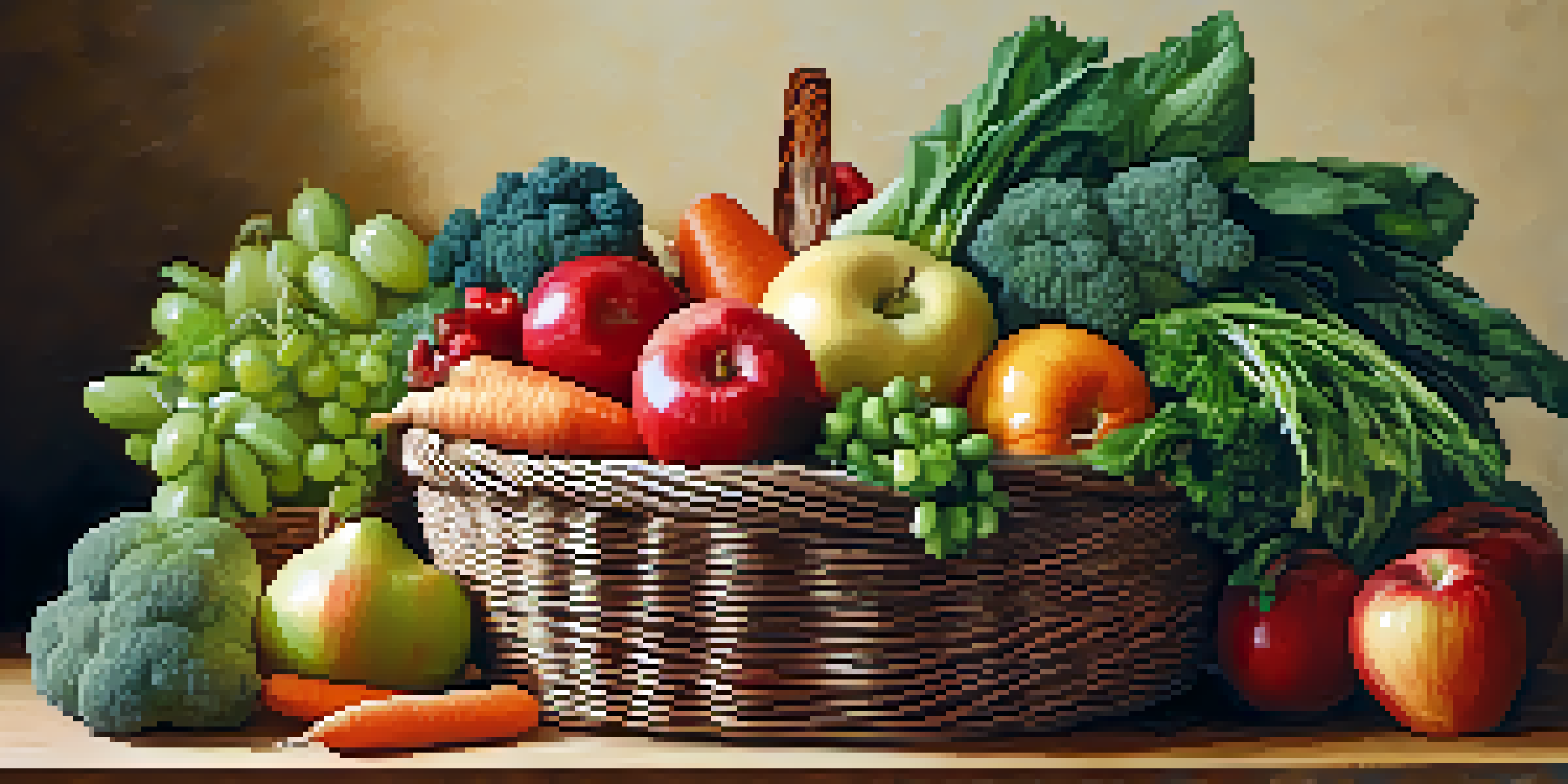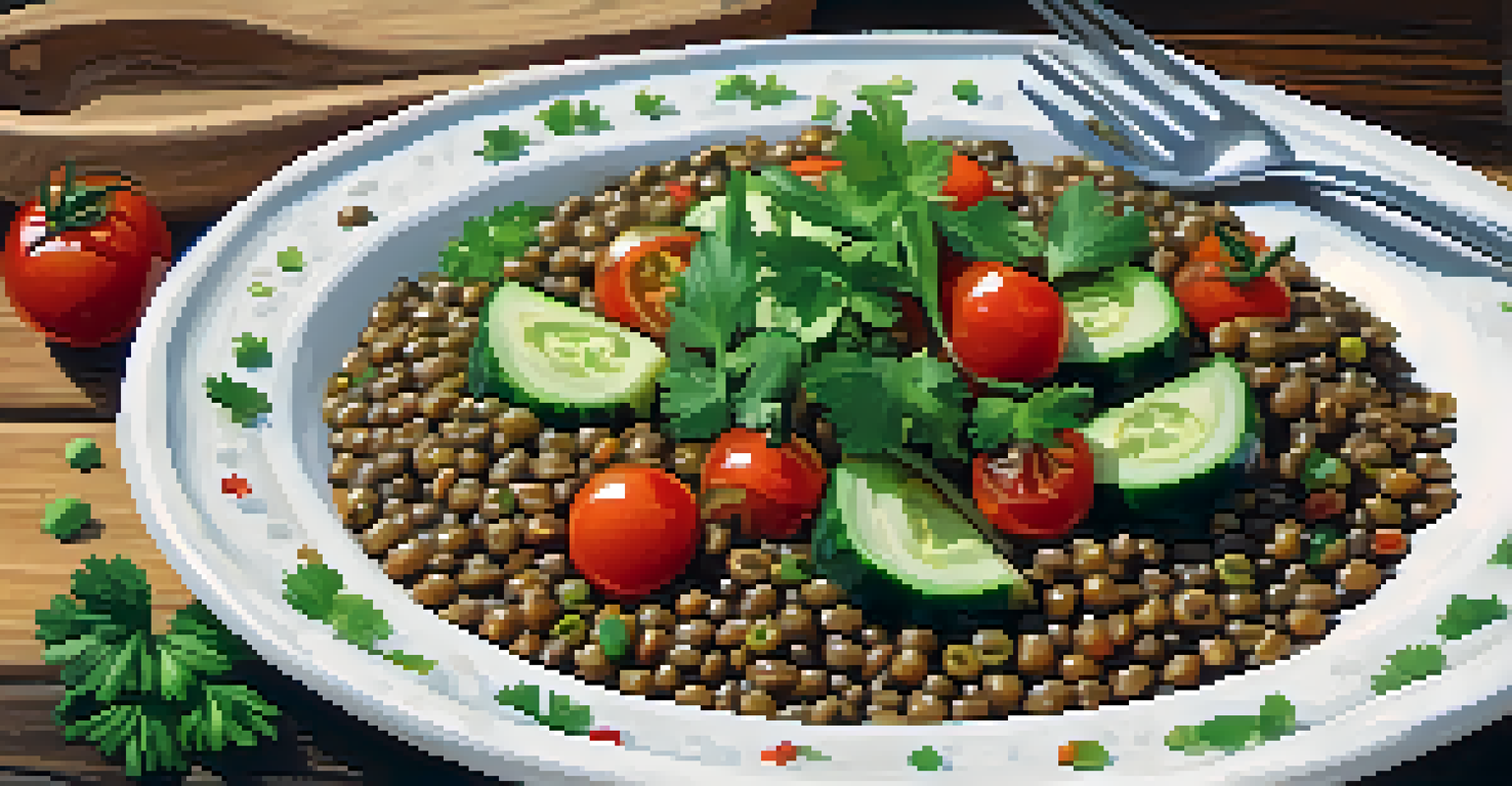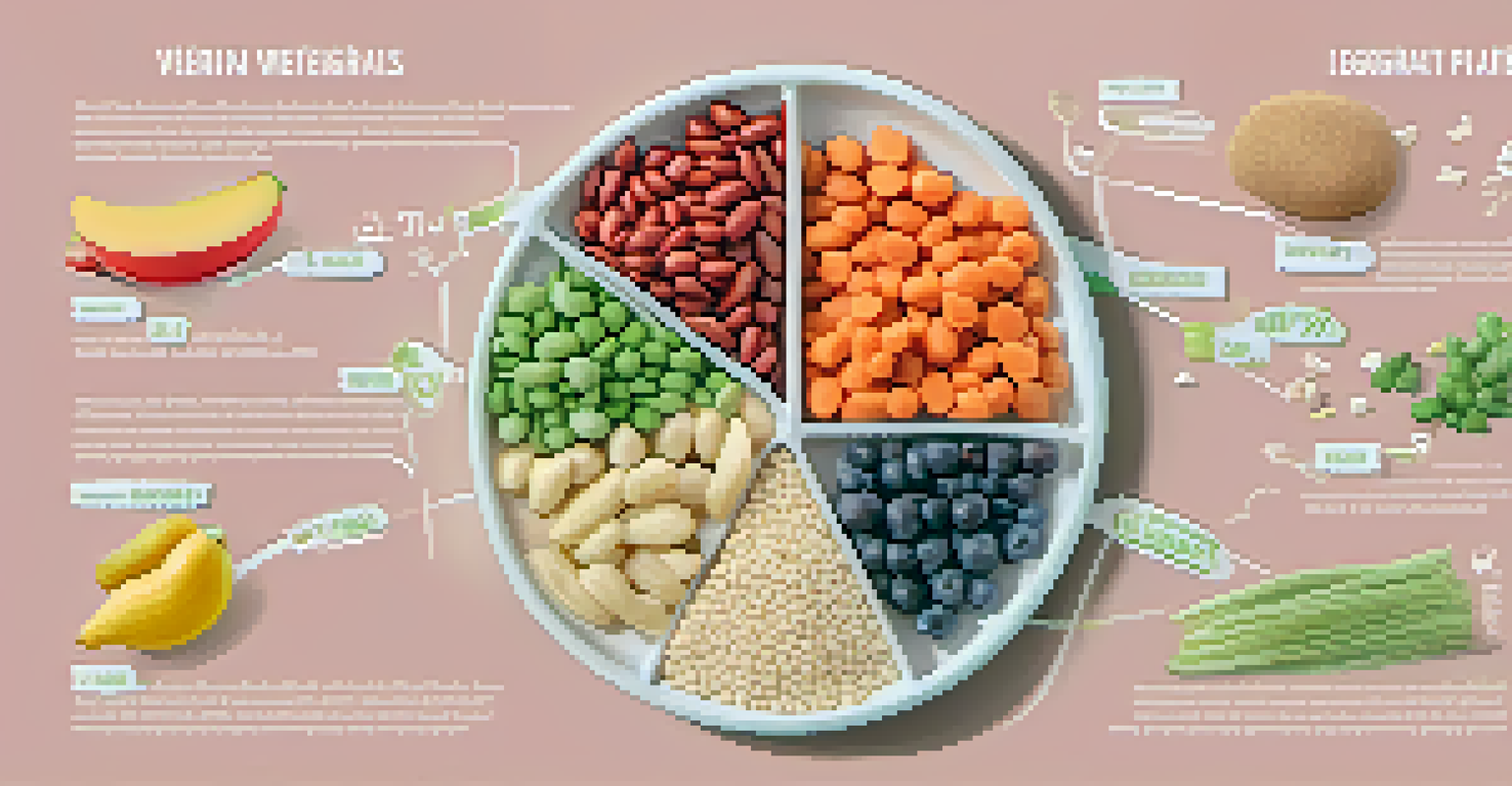Fiber Overload? Debunking Myths About Vegetarian Fiber Intake

What is Fiber and Why is it Important for Health?
Fiber is a type of carbohydrate found in plant foods that your body can't digest. It plays a crucial role in maintaining digestive health by promoting regular bowel movements and preventing constipation. Additionally, fiber helps regulate blood sugar levels and can lower cholesterol, making it essential for overall wellness.
Let food be thy medicine and medicine be thy food.
There are two main types of fiber: soluble and insoluble. Soluble fiber dissolves in water and can help lower cholesterol, while insoluble fiber adds bulk to your stool and aids in digestion. Both types are important, and a balanced diet rich in fruits, vegetables, and whole grains can provide the necessary amounts.
Many people associate fiber with vegetarian diets, often thinking vegetarians consume excessive amounts. However, the reality is that a well-planned vegetarian diet ensures a healthy fiber intake without contributing to overload. Understanding fiber's benefits helps debunk common myths surrounding vegetarian diets.
Common Myths About Fiber Intake in Vegetarian Diets
One prevalent myth is that vegetarians get too much fiber, leading to digestive issues. In truth, most people can comfortably digest the fiber from fruits, vegetables, and whole grains when consumed in moderation. The key is to gradually increase fiber intake to allow your digestive system to adjust.

Another misconception is that all fiber is the same, but that's far from the truth. Different sources of fiber provide unique benefits, and a diverse diet enhances overall health. For instance, beans are rich in soluble fiber, while whole grains provide a good mix of both types.
Fiber's Role in Digestive Health
Fiber is essential for promoting regular bowel movements, regulating blood sugar, and lowering cholesterol.
Lastly, some believe that only vegetarians need to worry about fiber intake. However, everyone should aim for sufficient fiber, regardless of their diet. Promoting fiber awareness for all diets can help improve public health and dispel these myths.
Signs of Fiber Overload: What to Look For
Fiber overload can lead to discomfort, including bloating, gas, and abdominal cramps. These symptoms often arise when someone suddenly increases their fiber intake without allowing their body to adjust. It's essential to introduce fiber-rich foods gradually to prevent these issues.
You are what you eat, so don't be fast, cheap, easy or fake.
Another sign of excessive fiber may be constipation, which seems counterintuitive. Too much fiber without adequate hydration can actually hinder digestion, leading to hard stools. Balancing fiber intake with plenty of water is crucial for maintaining digestive health.
Lastly, if you find yourself rushing to the bathroom frequently, it might be a sign of fiber overload. While fiber promotes regularity, excessive amounts can lead to diarrhea. Listening to your body and adjusting your fiber intake can help maintain a healthy balance.
How Much Fiber Do Vegetarians Really Need?
The recommended daily fiber intake varies by age and gender but generally falls between 25 to 38 grams for adults. For vegetarians, achieving these goals is quite feasible through a diet rich in legumes, fruits, vegetables, and whole grains. A well-rounded vegetarian meal plan can easily meet these requirements without excess.
For example, a cup of cooked lentils contains about 15 grams of fiber, while a medium apple adds around 4 grams. Combining these foods throughout the day can quickly help vegetarians reach their fiber goals. Meal planning can ensure a healthy balance without overwhelming the digestive system.
Myths About Vegetarian Fiber Intake
Common misconceptions about fiber intake in vegetarian diets can lead to unnecessary concerns about digestive health.
It's also important for vegetarians to consider their unique dietary needs based on lifestyle, age, and activity level. Tailoring your fiber intake to fit your personal health goals can make all the difference in overall wellbeing.
Building a Balanced Vegetarian Diet with Fiber
To create a balanced vegetarian diet, focus on incorporating a variety of fiber-rich foods. Include plenty of fruits, vegetables, whole grains, nuts, and seeds to ensure you receive both soluble and insoluble fiber. Not only do these foods provide necessary nutrients, but they also help promote digestive health.
It's beneficial to mix different sources of fiber in your meals. For example, adding chia seeds to a smoothie or tossing beans into a salad can boost fiber content seamlessly. This approach enhances flavor and texture while ensuring you enjoy all the health benefits fiber offers.
Remember, moderation is key. Aim for a gradual increase in fiber to avoid discomfort, and pair high-fiber meals with adequate hydration. A well-balanced fiber intake can lead to improved digestion and overall health without the fear of overload.
Practical Tips for Managing Fiber Intake
Start by slowly increasing your fiber intake instead of making drastic changes overnight. This gradual approach allows your body to adapt without experiencing discomfort. For instance, if you typically eat one serving of vegetables per day, try adding an extra serving every few days until you reach your desired amount.
Stay hydrated! Drinking plenty of water is essential when increasing fiber intake, as it helps move fiber through your digestive system. Aim for at least eight glasses a day, and consider drinking more if you're consuming higher amounts of fiber.
Tips for Managing Fiber Intake
Gradually increasing fiber intake and staying hydrated are key strategies for maintaining digestive comfort and health.
Lastly, keep a food diary to track your fiber intake and any symptoms you experience. This practice can help you identify patterns and make adjustments as needed. With a little mindfulness, managing fiber intake can be a simple and effective way to support your health.
Consulting a Professional for Personalized Advice
If you're unsure about your fiber intake or have specific dietary concerns, consulting a registered dietitian or nutritionist can be incredibly beneficial. These professionals can provide personalized advice based on your health goals and dietary preferences. They can help you navigate your vegetarian diet to ensure it meets your nutritional needs.
Additionally, a dietitian can assist in meal planning, offering tailored recipes that incorporate a healthy balance of fiber. This guidance helps eliminate guesswork and ensures you're making the best choices for your health.

Remember, everyone's body is different, and what works for one person may not work for another. Seeking expert advice can empower you to make informed decisions about your fiber intake and overall nutrition.